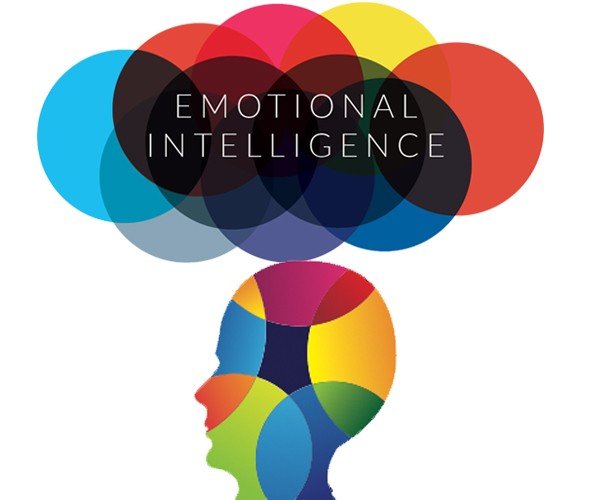Top 5 Best Free MSCEIT Resources
Before you read this blog, make sure you check out our Free and Paid Resources that our organisation provides.
The MSCEIT (Mayer-Salovey-Caruso Emotional Intelligence Test) is a test conducted by an array of institutions who are looking to quantify emotional intelligence in applicants for a job, or training programs or to identify potential leaders. The purpose of this blog is to share my advice on the best free resources out there that can help you prepare and do well in this test. With that in mind, I will skip over the nitty-gritty of the test and assume you have a good understanding of the test. My aim is to encourage you to practice because we can all improve our understanding of emotions and whether or not we sit an emotional intelligence test, this skill is invaluable.
The Atlas of Emotions
URL: The Ekmans' Atlas of Emotions
Paul Ekman is one of the leading psychologists in the 21st century who devoted his work to studying emotions. He is to emotions what Elon Musk is to electric vehicles. He spent most of his time studying facial expressions. More information on this later. He teamed up with the Dalai Lama to bring a free interactive tool that could be used by a large population with the aim of improving people’s understanding of emotions. The website is a genuine masterpiece and is incredibly helpful with respect to the MSCEIT. There is so much complexity in the illustrations.
For example:
This is your most comprehensive resource that covers the most valuable information one will need for the MSCEIT. While this may improve your emotional literacy, applying the information is far more difficult. See our resources pages for additional resources to help guide you.
2. Atlas of Facial Expression: an account of facial expression for artists, actors, and writers / Stephen Rogers Peck
The next resource is a great book for helping to develop your understanding of how to recognise emotions in faces. This is section A (out of 8 sections) of the MSCEIT. The book has 50 pages of drawings showing the facial musculature and 16 pages of photographs of sculptures. The sculptures contain facial expressions. The book details facial behaviour, ranging from happiness to anger and everything in between. I would not buy this book but recommend that you attend your local library and see if they have it. Your university could also be a great option if you are studying.
3. Emotions revealed: recognising faces and feelings to improve communication and emotional life
Without a doubt, the most IMPORTANT book to help you improve your ability to recognise emotions in faces. Paul Ekman as mentioned above, spent his life dedicated to recognising emotions in faces. He has trained intelligence agencies, doctors, and many other professionals who would benefit from improving their ability to decode emotions from facial expressions.
The book is incredibly detailed and is more than required for the MSCIET. However, Ekman does an amazing job of summarising the distinct facial features to look out for in the key emotions we see in human faces. He also covers extremely useful information about these basic emotional states (like anger, fear etc). I would encourage everyone to ignore the technicalities of micro-expressions as this is beyond the scope of what would be needed for the MSCEIT.
Again, like the Atlas of Facial Expression, this resource needs to be borrowed from a library if you are trying to navigate spending money on resources. Most university libraries would indeed have these books in the psychology section. The book can be found below.
4. Mayer-Salovey-Caruso Journal Articles
The founders of the MSCEIT published multiple papers on their theories of emotional intelligence before joining MHS to make the test. You would be robbing yourself if you did not go and read what the founders of the test published in the literature. Why??? They literally made the test and having an appreciation for why they carefully made it the way they did would benefit you. Now I am not saying reading their papers will expose you to the test itself, but certainly understanding the brains behind the test will change the way you think about approaching the test. However, getting access to these journal publications will not be so easy if you are not a current university student. Google Scholar may be a good option for people who do not have university access to publications.
Here are some papers I would recommend reading:
Mayer, J.D., & Salovey, P. (1997). What is emotional intelligence? In P. Salovey & D. Sluyter (Eds.), Emotional development and emotional intelligence: Educational implications (pp. 3-31). New York: Basic Books.
Salovey, P., Mayer, J. D., Caruso, D., & Lopes, P. N. (2003). Measuring emotional intelligence as a set of abilities with the Mayer-Salovey-Caruso Emotional Intelligence Test.
John D. Mayer, Peter Salovey & David R. Caruso (2004). "Emotional Intelligence: Theory, Findings, and Implications", Psychological Inquiry, 15:3, 197-215, DOI: 10.1207/s15327965pli1503_02
5. Complete Free Practice Questions
Without a doubt, the hallmark of effective preparation is doing practice questions. Getting exposure to the types of questions asked in the MSCEIT will help you feel more comfortable on test day and improve your awareness of what the test is asking. Finding free practice questions for the MSCEIT is no easy task. We have resources for you. On our resources page, you can find our sample questions which have a small snippet of questions that simulate similar questions in the MSCEIT. If you are not looking to spend any money then we recommend browsing the internet to see what you can find in addition to our resources.
Some resources found on the open web include:
file://datatwo/13661131$/Profile/Downloads/MSCEITSampleEmotionalIntelligence.pdf
https://docs.google.com/document/d/1yK9z3F7fMniJL7-U-mlCtoNikuE3u50krb-3A0S7J5o/edit#heading=h.xbu9wgd1zbcv
Beyond these resources, these are the only practice questions in addition to ours you will find online. You also will not find answers to these practice questions for these resources which is frustrating when tyring to prepare for the test.



